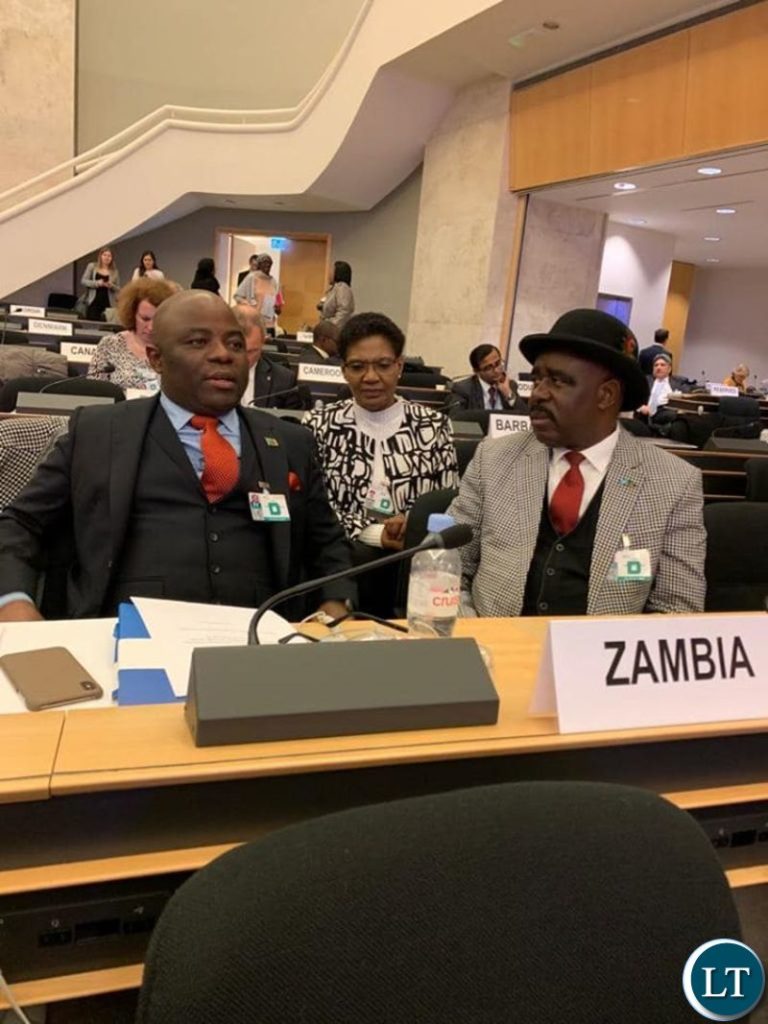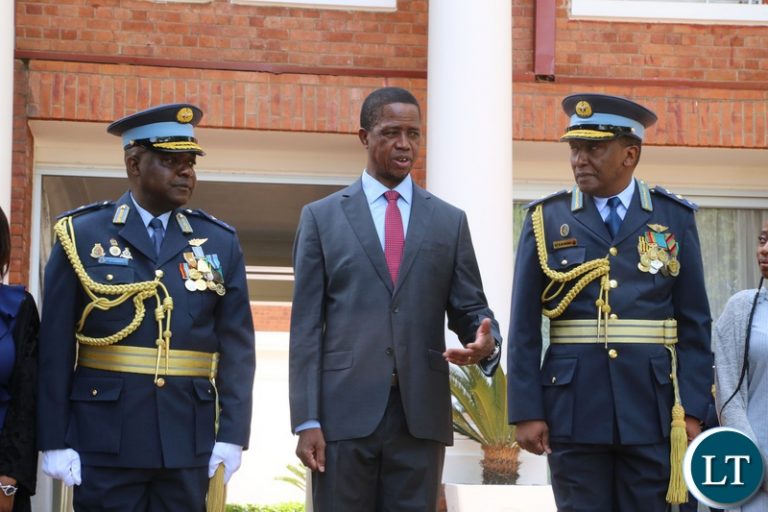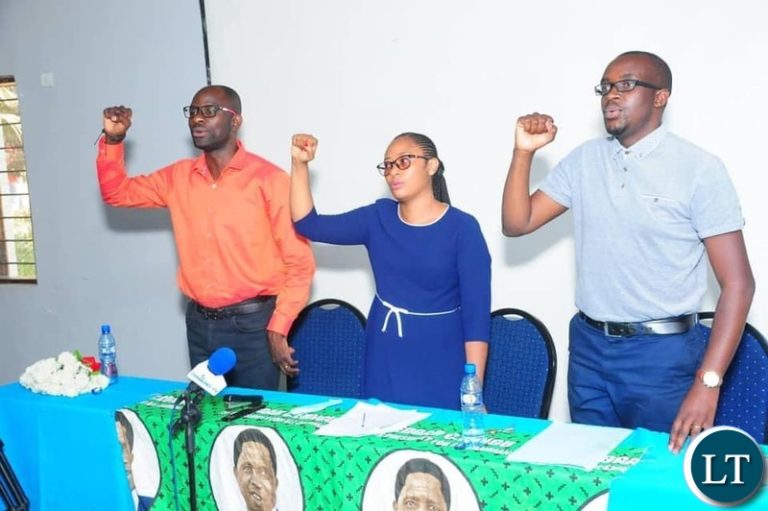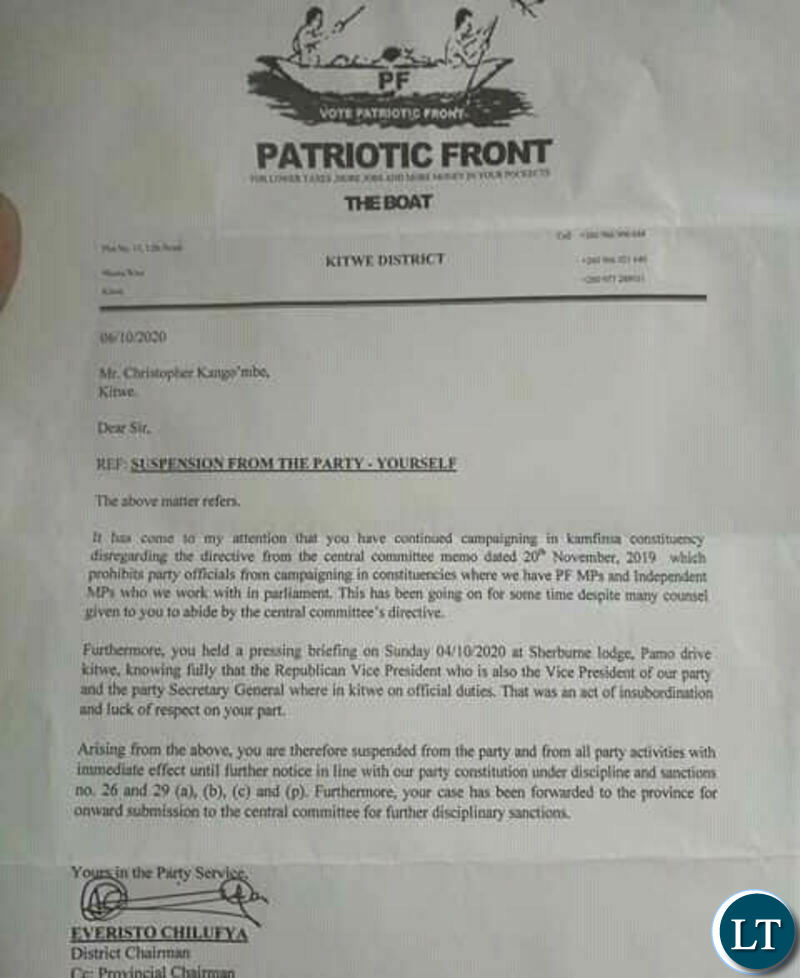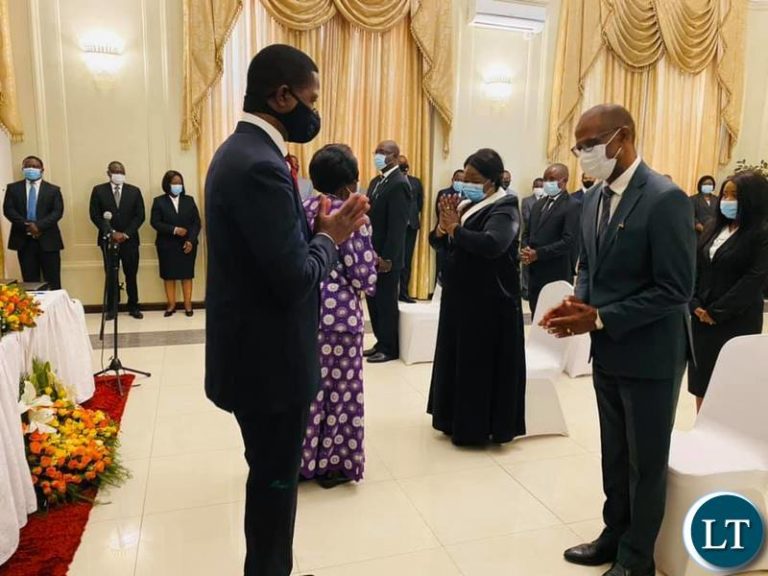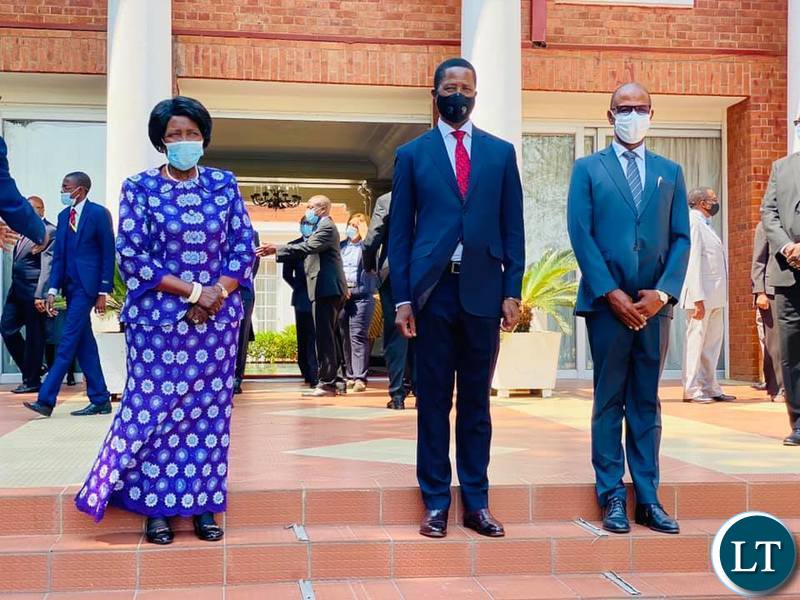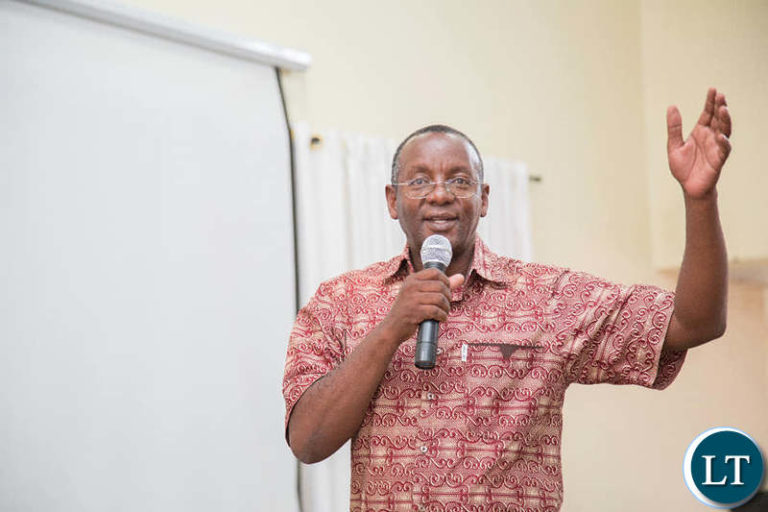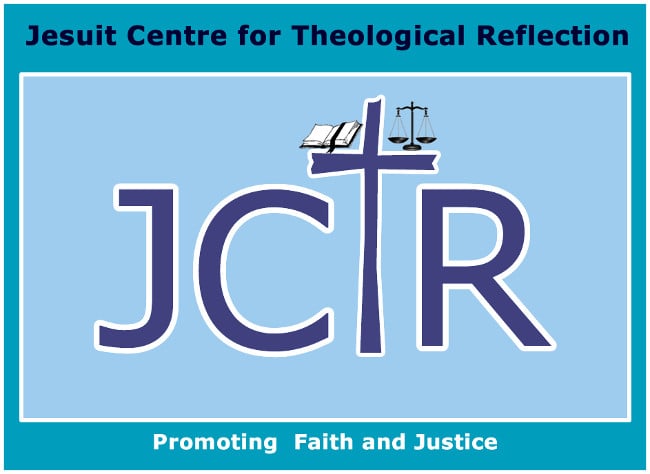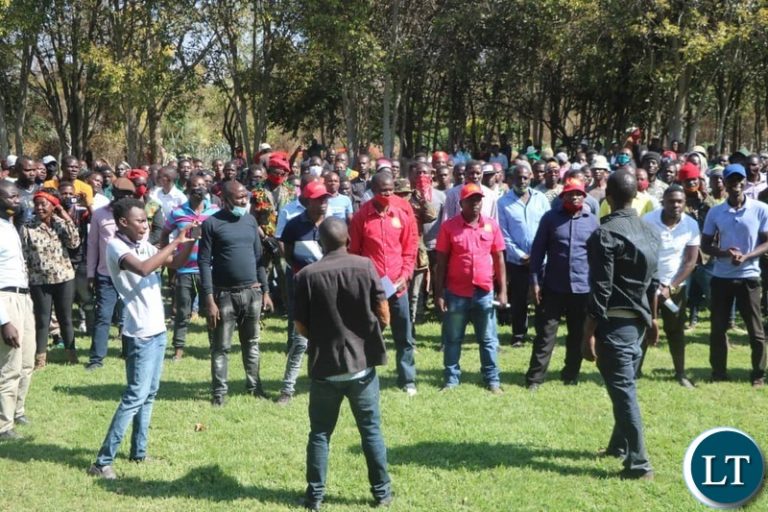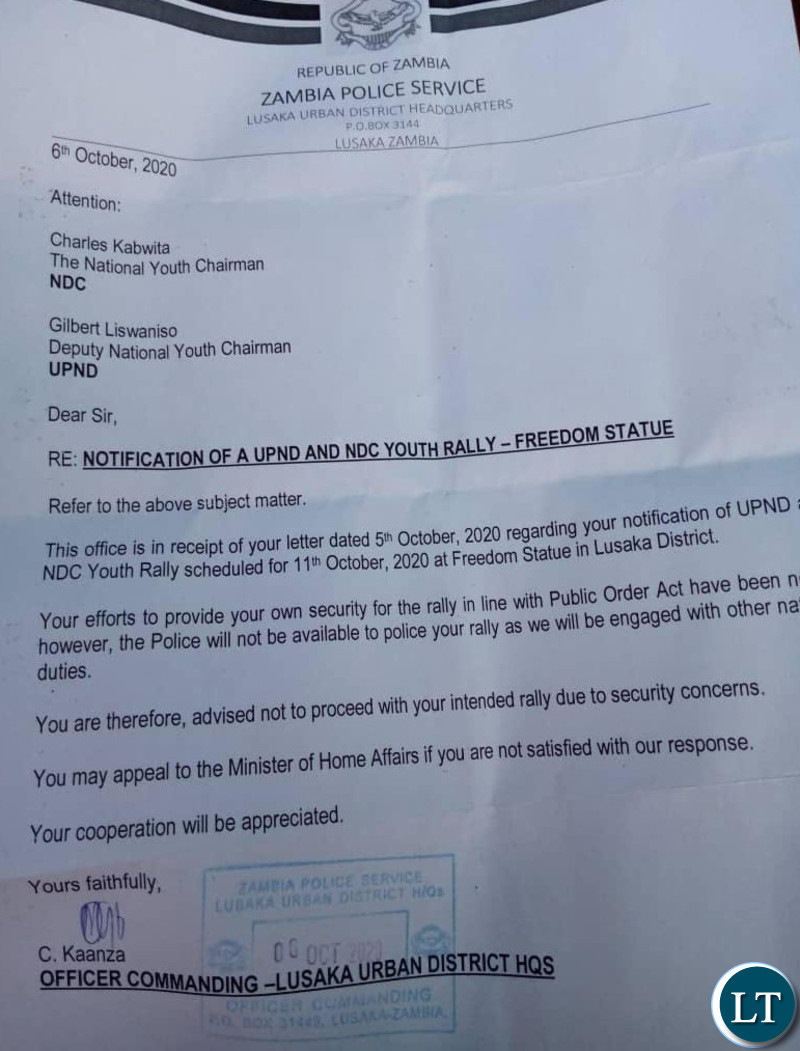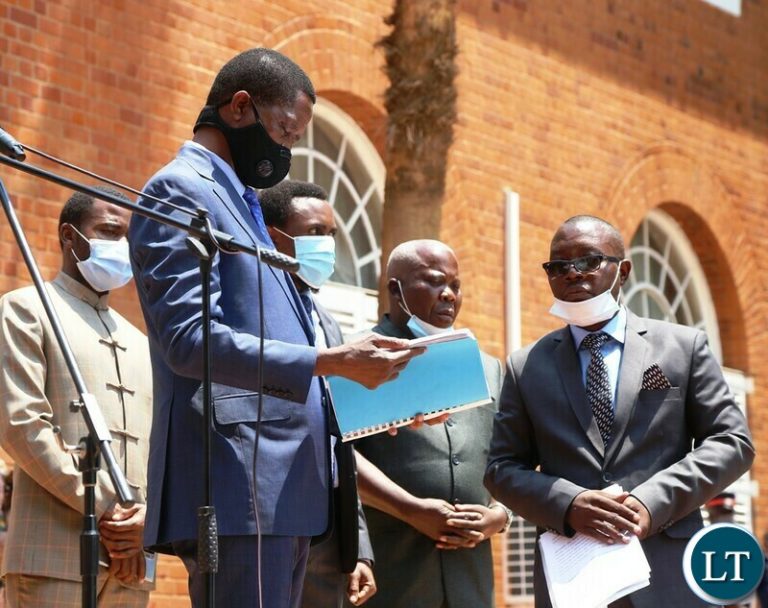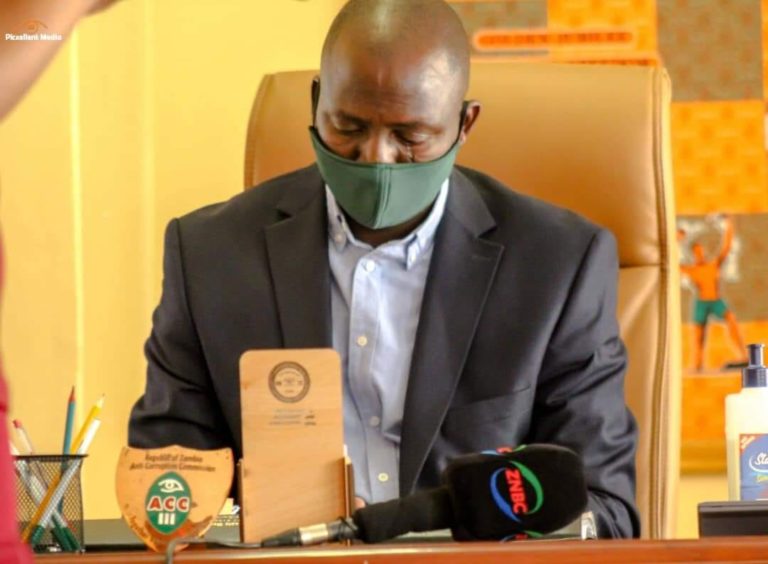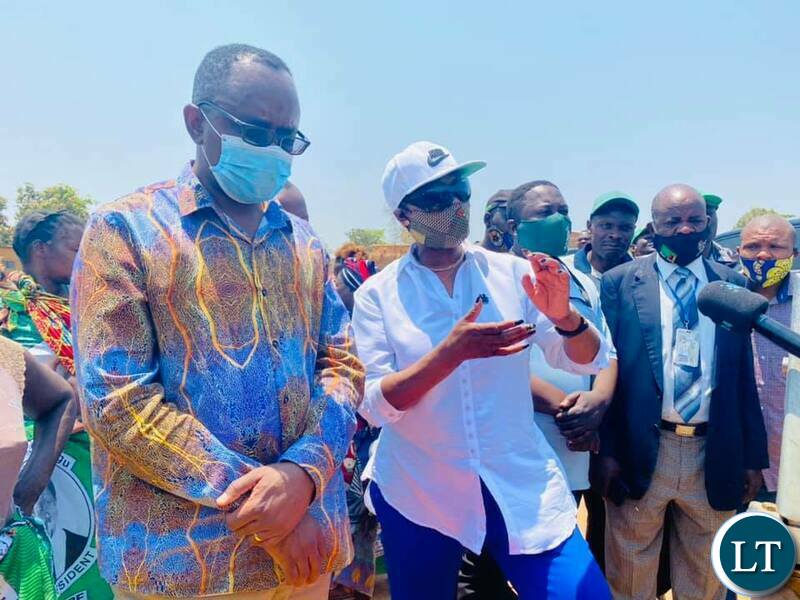By: Anthony Bwalya – UPND Member.
President Edgar Lungu is busy persecuting his political opponents in Zambia on flimsy, trumped-up charges, ranging from treason, aggravated robbery (in the case of Mucheleka and others), and now abusing state power to institute a Commission of Inquiry into the Privatization Process from nearly 30 years ago.
President Lungu was an active participant in this process. I want to imagine that he understood the process then, and still understands the historical perspective of the process. The only thing that has changed now is that Mr. Lungu is now trying to leverage this historical process against his political opponents.
President Lungu has bigger problems to worry about, problems that will not just go away given that the issues are aggressively being tried in a Rwandan court.
President Lungu’s mention in the alleged financing of an armed terrorist group in Rwanda should be of grave concern to all sober-minded citizens. Of course, we are NOT implying that he is guilty, but merely raising questions about the caliber of his judgment.
Here are some basic facts and publicly available:
The testimony by Major Callixte Nsabimana also known as “Sankara” alleges the following:
– President Edgar Lungu gave Paul Rusesabagina $150,000 out of a total pledge of $1m towards the end of 2017. He further offered the rebels the ability to operate freely in Zambia.
– The president allegedly sympathized with Rusesabagina for the treatment he had to endure under the Paul Kagame regime. Rusesabagina had great respect for the president due to the help/support he had offered fleeing Rwandan businessmen.
– In early 2019, Nsengiyumva Appolinaire met with the President to discuss further support for overthrowing the Kagame regime.
We, therefore, have FIVE key players in this saga:
- President Edgar Lungu – the only Zambian Citizen alleged to be involved
- Major Callixte Nsabimana also known as “Sankara” – FLN leader, has already pleaded guilty to charges laid against him for attacks in Rwanda.
- Paul Rusesabagina – Another alleged FLN leader last known to be based out of Belgium with a trucking business in ZAMBIA setup in the late 90’s after fleeing Rwanda.
- Nsengiyumva Appolinaire – A Rwandan living in ZAMBIA operating an SME.
- Kayumba Nyamwasa – former Rwandan military chief, arch enemy of Paul Kagame, exiled in South Africa and accused of Terrorism in Rwanda. Despite an arrest warrant, brags about being able to visit Zambia often and has allegedly been seen visiting Zambia often lately.
MAY 2019
As part of the trial in May 2019, Sankara alleged the involvement of high ranking intelligence officials in UGANDA and BURUNDI. Meanwhile, the RWANDAN PROSECUTION alleged funding for this rebel group came from Rwandan refugees living in countries including ZAMBIA. Recruitment was also alleged to be happening in ZAMBIA.
Therefore, the initial allegations of terrorism financing and recruitment happening on ZAMBIAN soil came from the Rwandan prosecution, and by implication, the Rwandan authorities. The Zambian authorities did not/ have not respond to these allegations.
Around the same time, the Zambian Financial Intelligence Centre lays bare a case of terrorism financing that occurred in 2018, with funds flowing from Zambia to a state where terrorism activities are prevalent. The known individuals involved were linked to terrorism groups in that state. The case was transferred to “competent” authorities for further investigation.
DECEMBER 2019 to MAY 2020
In a complex web of transactions, ZCCM forms a joint venture with little known Sudanese investors (Karma Mining) for ZCCM to obtain a minority stake in a gold processing venture. In a transaction that appears to have failed basic due diligence measures, particularly due to Sudan being a known state sponsor of terrorism, as well as appearing of the sanctions list of the USA, UN, EU, and UK. The sequence of events behind this transaction implies political connotations and appears to have been forced onto ZCCM by the political elite.
A further venture was agreed into with Array Metals, who have exploration rights to $400m worth of Gold in Mumbwa. The players behind this group are Ugandans with no previously known gold mining experience. These Ugandans have suspected links to the political elite in Zambia and in Uganda, and officials are known to have business dealings with a UN-sanctioned General from South Sudan.
The above two transactions, which leave the Zambian people with minimal benefits, coincidentally appear to be linked through the players and nations involved.
JULY 2020
As part of Sankara’s sworn testimony in court, startling new allegations are made, as summarised above.
The PF Government in a series of confused responses initially denies the claims without responding directly as to why the allegations cannot be true.
They then secretly (but exposed by eagle-eyed citizens) send Joe Malanji as an envoy of the President to meet with Rwandan authorities. He returns and issues another uncoordinated and non-sensical statement saying that the Rwandans are equally surprised by the allegations, that they are not credible, and that Sankara had never traveled to Zambia. Bilateral relations remain intact.
FURTHER ANALYSIS
- Sankara has never claimed to have traveled to Zambia. He said the people who met President Lungu were Rusesabagina and Appolinaire. These two individuals have irrefutable links to ZAMBIA. In fact, the latter, until recently, is known to have been appointed to the procurement committee of the IDC by President Lungu.
- The Rwandan prosecutors themselves alleged the involvement of players on Zambian soil.
- Would the Rwandan Government be prejudicial and ignore the court case and allegations to clear Zambia of any involvement before the trial is concluded and judgment is delivered?
- What incentive would Sankara have to dream about the president’s involvement? How would Sankara even dream about individuals like Appolinaire being in Zambia?
- Rwandan and Ugandan relations are strained. Zambian relations with Uganda are strong, and politically connected individuals between the two countries are involved in Zambian Gold. Is there a connection or is this a coincidence?
- The PF regime indicated that Zambia was sending investigators to Rwanda to get further insights into the case. Was this ever done? If so, what were the results?
- It is also important to note that Kayumba Nyamwasa, former Rwandan military chief, arch-enemy of Paul Kagame, has been allegedly allowed free movement into Zambia despite an arrest warrant. This has been noted by the Rwandan authorities as well and requires an explanation.
THE ZAMBIAN PUBLIC
The challenge the people of Zambia have with the current government and leadership is a matter of trust.
Even if the president is innocent in this, how can we be confident that one of his many friends and associates has not used the name of the president to commit crimes?
We have heard this over and over again from the PF. This is the reason why it is important that the president ensures he surrounds himself with people of good reputation and standing in society.
Why is it that the word “terrorism” keeps popping up in Zambia? First, it was the FIC report, then ZCCM Gold Scandal with links to Sudan, a country sanctioned for state sponsored terrorism, as well as Uganda, a country mentioned as part of this plot and now sponsoring of terrorism in Rwanda.
NEXT STEPS
We propose the following:
- Can the government sue the accuser in the courts of law?
- There is a clear CONFLICT OF INTEREST. The President through his Minister cannot lead investigations into himself for these allegations.
Therefore, we propose that a cross-member panel/committee be set up in Parliament to lead the investigations. Parliament shall then hold the Government to account should any of the allegations be proven. Failure to allow an independent parliamentary committee to investigate will raise red flags and create mistrust.
The people of Zambia deserve answers and we demand answers now!





